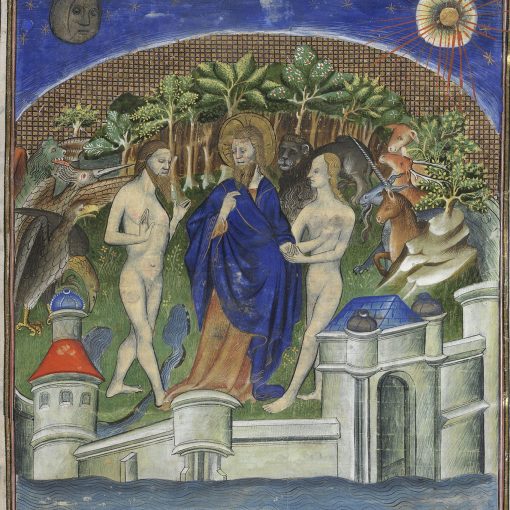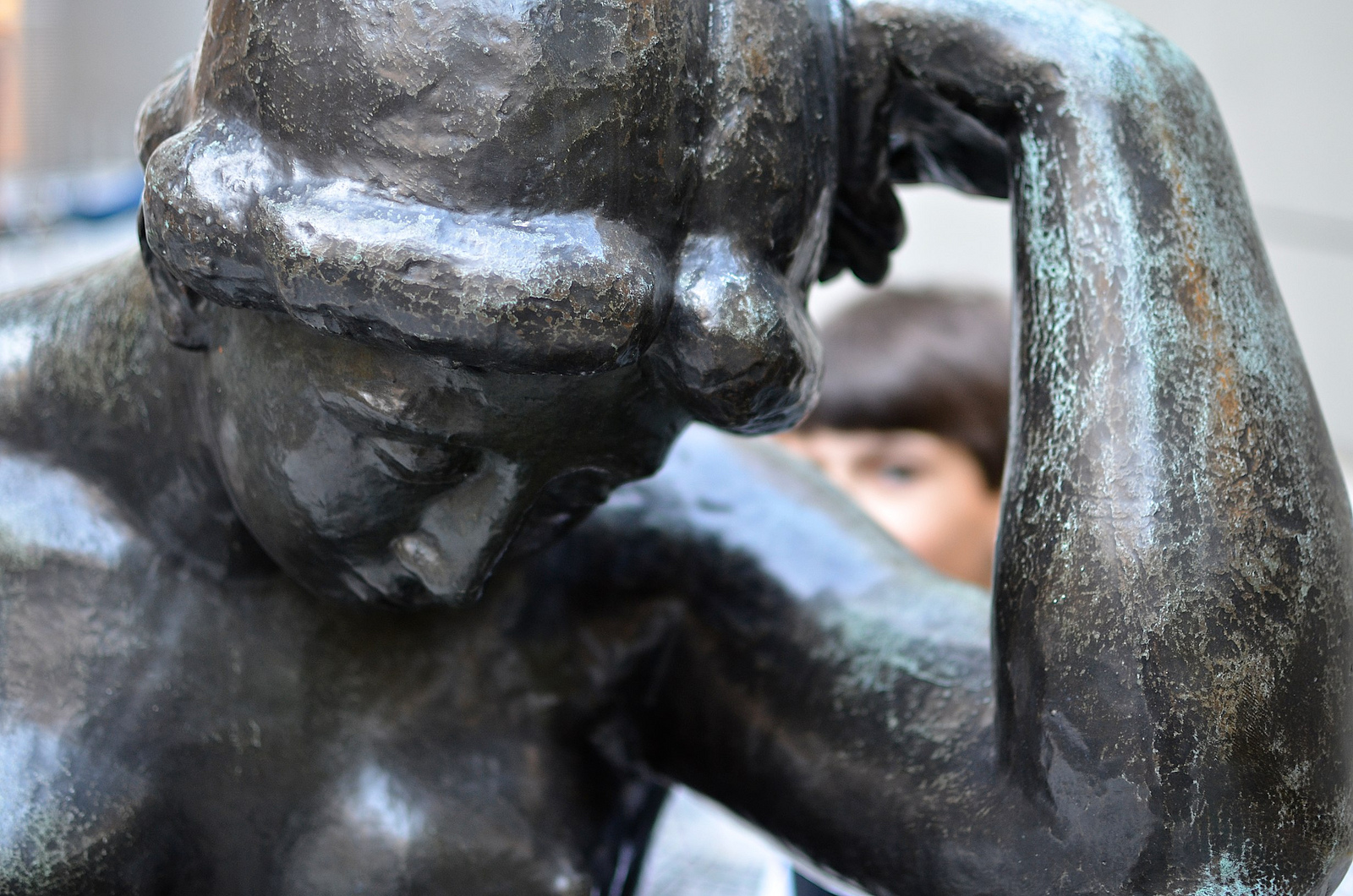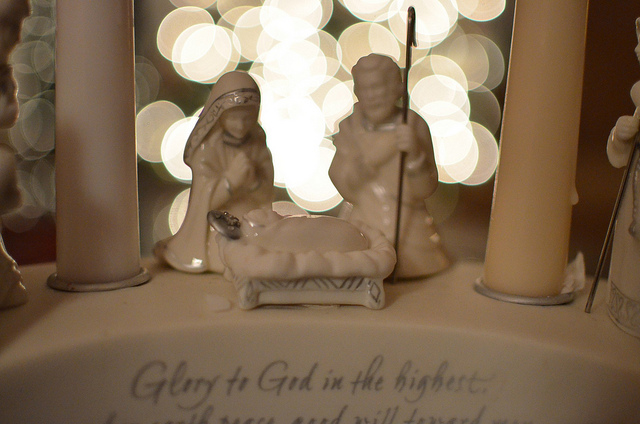This essay was written as part of the outreach program of The Episcopal Church of the Good Shepherd in Lexington to continue to minister to our community in this time of uncertainty and “social distancing” that requires not meeting in person. For essays by my friends and colleagues go to “Calming the Storm.”
“Lord, you have been our refuge, from one generation to another.”
This is the opening line of Psalm 90, a psalm of national lament that reflects upon our mortality, our sin before God, and the immovable fact that God’s loving-kindness, his mercy, is always present. It is a psalm worth reading, worth meditating upon, and perhaps best read before continuing with these reflections.
Psalm 90 opens, not as most laments with a complaint or a cry for God to see our tragic circumstances, but with the positive assertion of God’s protective force in the lives of his people “from one generation to another.” This Hebrew phrase, bedor vedor, “from generation to generation” is a reminder of God’s actions in the life of God’s people, from the calling of Abram down to today. It is a phrase found frequently in the Old Testament as the authors, prophets and poets, look back over the History of Israel, recounting the actions of each generation all the way back to God saying to Abram, “Get up and go to the place that I will show you” (Gen. 12:1). At every moment, in every generation, God was present with them. And in each generation, God’s people had moments of great faith and of incredible obstinacy.
Time and time again, God calls out to his people and they believe and follow God. They act in faith. Abraham “got up and went” even though he had no idea where he was going. Moses was called by God to lead the Children of Israel out of Egypt to the land he had promised to Abraham. It took some doing, but they followed Moses (to whom Psalm 90 is attributed) out of the house of slavery into…the wilderness.
For every moment of obedience there were many, shall we say, less compliant moments. Abraham did not trust that a child would be born to his aged wife Sara, Rebekah and Jacob couldn’t wait for God to work and so trick Daddy Isaac into blessing Jacob instead of Esau. Israel was just a few days out of Egypt and practically moments away from a miraculous escape from Pharaoh’s army when they complain about the food. God provides bread from heaven and even quails to eat, but they cannot escape the fact that they have disobeyed God. Even before the sun rose and the cock crowed, Peter three times denied he knew Jesus.
Ps. 90:7 For we consume away in your displeasure;
we are afraid because of your wrathful indignation.
8 Our iniquities you have set before you,
and our secret sins in the light of your countenance.
The psalmist confronts reality directly, not flinching or explaining away the fact that, though we are God’s people, we are not perfect. God knows. God knows and yet he remains our refuge and our strength in all times, the faithful and the doubting, the easy and the hard, the healthy and the sick.
Our current, national and global crisis did not come about because we sinned against God. It is the result of what D. A. Carson calls the “effluent of the fall,” the result of our living in a world that is not as God intended it to be for us. What was good and perfect is now broken, filled with pain, inequality, thorns and thistles, infections and cancer. We did not ask for any of it, yet here it is on our doorstep, in our homes and lives.
Yet while this heavy load of anxiety and sorrow has been placed upon us without our will, we are not without agency. The choice that remains for us is to decide how we will carry it. One first step is to lament, to bring forward to God our prayer, our complaint about the condition of the world, even as we affirm God’s unconditional love for us. We did not choose to have this pandemic take the lives of our most vulnerable, close our shops, lose our job, or develop cancer, but we can choose how we respond to it. We can respond in faith and hope.
When we do so, the suffering itself is transformed, not forgotten or denuded of its raw power inflicted on our lives, but altered and changed into an experience, a love, a thing of our choosing. It is not, however, something we do alone. We are not only in community with those around us who love us and want to help us carry the load, God is with us, our comforter and companion. This is the function of lament, to take to God our burden, express our grief and anger, and seek out his guidance for how best to carry on.
10 The span of our life is seventy years,
perhaps in strength even eighty;
yet the sum of them is but labor and sorrow,
for they pass away quickly and we are gone.
Our time on this earth is limited. We know this. The psalmist knows this, and God knows this. The psalmist states this, not to bring despair or to proclaim that all is in vain, but to find hope and joy, humility and grace! “So teach us to number our days that we may apply our hearts to wisdom!” Even when we look clearly at the brevity of our days and our capricious nature, the psalmist doesn’t find despair, he finds the opportunity to meet God, to find wisdom and joy. Because there, in the midst of it all, there is always the Spirit of God. “Satisfy us by your loving-kindness in the morning; so shall we rejoice and be glad all the days of our life.”
In such a time as this, we are all deeply aware of the fragility of this life. We should apply our hearts also to grow fully into the knowledge that God is present with us, our constant refuge in every generation, even as Jesus is preparing a place for us in the next life.
Lord God, you know our days are limited, so help us to use them well! To accept your gracious love and guidance, to go when you say “come and follow me,” to accept the bread of heaven that you offer in your outstretched hand.
“Satisfy us by your loving-kindness in the morning; so shall we rejoice and be glad all the days of our life.”
Amen.






One thought on “In Sickness and in Health”